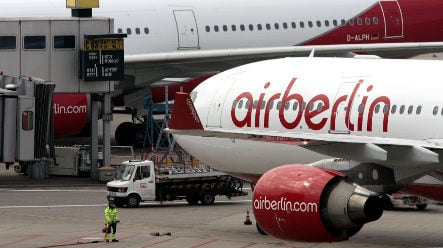“Along the way customers are expected to pay extra for services that should be a given – illegally according Berlin’s high court in a ruling against Ryanair,” the paper reported.
The court recently said that customers should be able to pay their ticket bill without extra fees based on which form of payment they choose. Ryanair charges a fee for credit and debit card use.
Meanwhile Air Berlin customers must pay a service charge of at least €10 just for buying a ticket, the paper reported.
“These are the costs that are connected to payment,” Air Berlin spokesperson Christoph Noack told the paper, calling it an “offer of transparency” because the company doesn’t want to hide the costs in their ticket prices.
But VZBV spokesperson Kerstin Hoppe said customers should have a fee-free payment option, the reason she sent both airlines a warning. Ryanair received a second warning from the VZVB for their check-in fees too. Passengers who get their boarding cards at the airport must pay a €40 fee, and those who check-in online pay €5.
“An airline can require all customers to check in online,” Hoppe said. “But then the online check-in it needs to be free of charge.”
Hoppe is also critical of travel insurance charges that the airlines force customers to reject.
These additions go against European Union rules, and past VZBV complaints have forced other airlines in violation to react by changing their fee systems, she said.
“The fight against is a reminder of the race by the tortoise and the hare,” Der Tagesspiegel said. “Because while courts decide over fees for booking, payment and baggage, the discount airlines have long since added new income sources. Wheel chair fees, and additions for emergency exit seats – discount airlines are more expensive that quickly.”



 Please whitelist us to continue reading.
Please whitelist us to continue reading.
Member comments